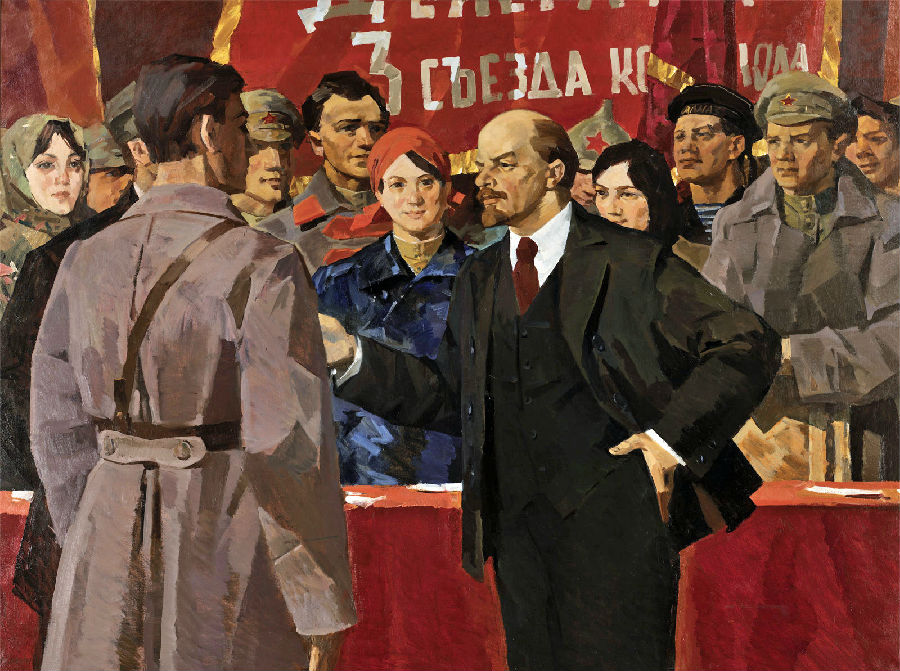(单词翻译:单击)
视听文本
Three, abolition of all rights formerly restricted to certain nationalities (Russian) or religions like Russian orthodoxy,
第三,废除之前特殊民族(俄罗斯族)或宗教如俄国东正教的特权
And four, free development of all national minorities and ethnic groups within Russian lands.
第四,促进俄罗斯境内全国各少数民族的自由发展
This lofty sounding declaration reflected the Bolshevik belief in an immanent world revolution.
这则崇高而夸张的宣言反映出布尔什维克对内在世界革命的笃信
But in a sense it was also a response to the 18 points developed by President Woodrow Wilson to end the First World War.
但某种意义上讲,它也是对伍德罗·威尔逊总统为结束一战而提出的十八点原则(注:实应为十四点原则)的回应
But it resembled even more the Emancipation Proclamation,
但它更多的像是《奴隶解放宣言》,
because it freed people and territories Poland, Ukraine, Belarus, Estonia, Latvia and Lithuania already under another power's control.
因为它解放了人民和领土隶属波兰,乌克兰,白俄罗斯,爱沙尼亚,拉脱维亚和立陶宛已经处在另一种力量的控制之下
Still the Emancipation Proclamation was a major step towards a genuine good.
而《奴隶解放宣言》仍是朝着真正的善而迈出的一步
Lenin and Stalin on the other hand were making a cynical play for the support of the former Russian empire's nationalities.
相反,列宁和斯大林是在上演一出愤世嫉俗的好戏,为了赢得前俄罗斯帝国各族的支持
Once the Bolsheviks established power over the former Russian empire, the non-Russian peoples would find Bolshevik reality quite a bit different.
一旦布尔什维克政权建立起来,非俄罗斯民族会发现布尔什维克现实世界还是略有不同的
On November 19, 1917 the Bolsheviks started peace negotiations with Germany in the town Brest-Litovsk.
1917年11月19日,布尔什维克开始同德国在雷斯特-立托夫斯克(今布列斯特)市进行和平谈判
视频及简介
课程介绍:
此课程介绍了十月革命前的苏联。
原声视频:


